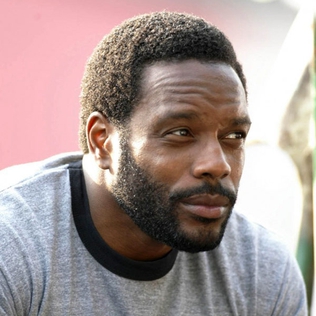Books, movies, food, and random thoughts in English and Chinese. Sometimes I confuse myself.
Search This Blog
Wednesday, August 26, 2015
The Death of Stringer Bell
I have been binge-watching The Wire lately. Just got to Season 3, Episode 11, which ends with the killing of Stringer Bell at the hands of Omar and Brother Mouzone, two killers with their codes of conduct.
Even for a show renowned for its gritty realism, the makers could not help injecting a bit of romanticism. In the empty house, Omar in a trench coat strolled through the door, shotgun in hand. A couple of pigeons flapped around him. Anyone familiar with the gangster genre would recognize an homage to John Woo. The connection here is no accident --- George Pelecanos, the DC crime novelist and writer of this episode, was involved in importing Woo's Hong Kong movie The Killer into the US in early 1990s. The movie caused a bit of a sensation in the cinematic circles and created a sizable cult following of the sub-sub-genre of HK gangster films that included Martin Scorsese.
And then, before his execution, Bell argued weakly that he was no longer in the criminal world and on his way to becoming a legit businessman. Then they shot him. This bit could very well be a nod to the famous climax in "Unforgiven" --- Gene Hackman exclaimed, "I'm not supposed to die like this. I'm building a house!" before Clint Eastwood shot him. Indeed, Stringer Bell was also a building a house, and had his sight on building a few more houses around Baltimore. It was his American Dream.
I can see why The Wire is considered possibly the best American TV series ever. I think the writing greatly benefited from Pelecanos' involvement starting in Season 2, which brought the plotting and characterization up a few notches from Season 1 while maintaining the gritty realism of David Simon and Ed Burns. Still, the series suffer a little from a few weaknesses inherited from Season 1, particularly the unfocused characterization of Avon Barksdale. Unfortunately Wood Harris, who played Barksdale, was one of the weaker actors in an otherwise strong cast. I can see the intention in the portrayal of the relationship between Bell and Barksdale, but I don't feel it. It does not hit me in the gut like many of the other characters in the series.
Subscribe to:
Post Comments (Atom)
The Ending of Le Samourai (1967), Explained
A quick online search after watching Jean-Pierre Melville's Le Samourai confirmed my suspicion: The plot is very rarely understood by E...



No comments:
Post a Comment